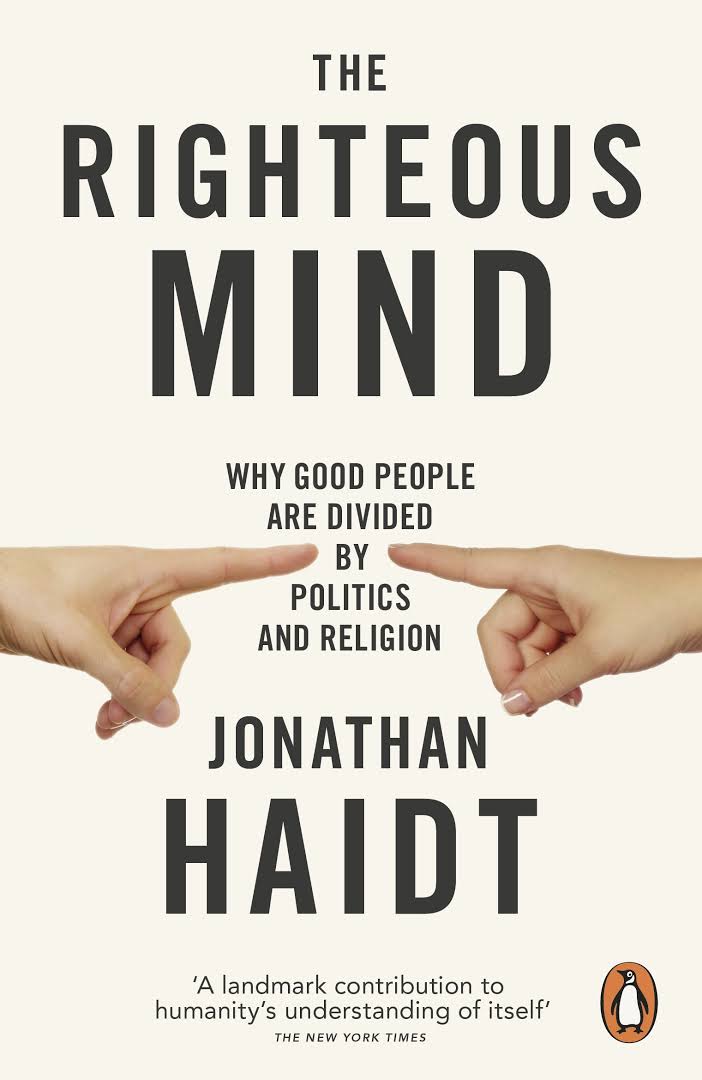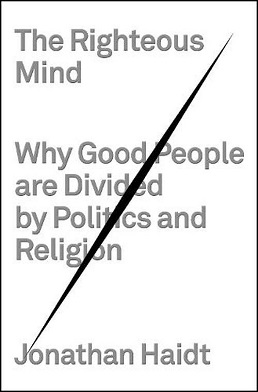

In 1995, Haidt was hired as an assistant professor at the University of Virginia (UVA), where he worked until 2011, winning four awards for teaching, including a statewide award conferred by the Governor of Virginia. At Shweder's suggestion, he visited Orissa, India, to continue his research.

He then studied cultural psychology at the University of Chicago as a postdoctoral fellow, supervised by Jonathan Baron and Alan Fiske (at the University of Pennsylvania), and cultural anthropologist Richard Shweder (University of Chicago). He received a BA in philosophy from Yale University in 1985, and an MA in psychology in 1988 and a PhD in psychology from the University of Pennsylvania in 1992.

His grandparents were immigrants from Russia and Poland. Haidt is of Jewish descent (although an atheist as regards religion ) and was born in New York City, being raised in Scarsdale, New York. He is among the most cited researchers in political and moral psychology, and is considered among the top 25 most influential living psychologists. He has been named one of the "top global thinkers" by Foreign Policy magazine, and one of the "top world thinkers" by Prospect magazine. Haidt has attracted both support and criticism for his critique of the current state of universities and his interpretation of progressive values. Haidt has written three books for general audiences: The Happiness Hypothesis: Finding Modern Truth in Ancient Wisdom (2006) explores the relationship between ancient philosophies and modern science The Righteous Mind: Why Good People are Divided by Politics and Religion (2012) examines how morality is shaped by emotion and intuition more than by reasoning, and why differing political groups have different notions of right and wrong and The Coddling of the American Mind: How Good Intentions and Bad Ideas Are Setting Up a Generation for Failure (2018), co-written with Greg Lukianoff, explores the rising political polarization and changing culture on college campuses, and its effects on mental health. The research served as a foundation for future books on various topics. The theory was later extended to explain the different moral reasoning and how they relate to political ideology, with different political orientations prioritizing different sets of morals.

Haidt's main scientific contributions come from the psychological field of moral foundations theory, which attempts to explain the evolutionary origins of human moral reasoning on the basis of innate, gut feelings rather than logic and reason. His main areas of study are the psychology of morality and moral emotions. He is the Thomas Cooley Professor of Ethical Leadership at the New York University Stern School of Business. Jonathan David Haidt ( / h aɪ t/ born October 19, 1963) is an American social psychologist and author.


 0 kommentar(er)
0 kommentar(er)
